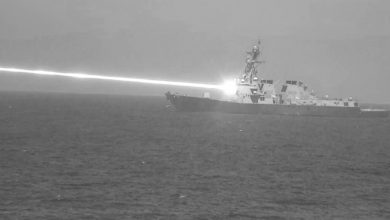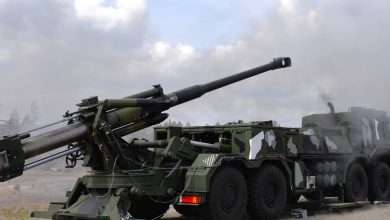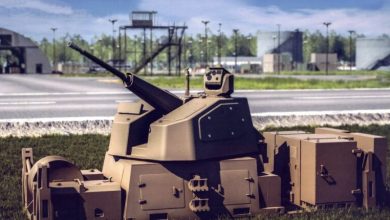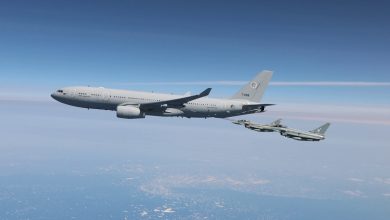Nato bolsters peacekeeping troops as Serbia and Kosovo edge closer to war
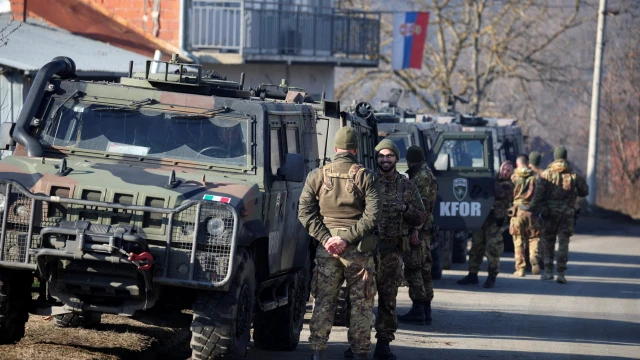
Fears over the outbreak of a second conflict on European soil rise as both Belgrade and Pristina put troops on high level of combat readiness
Nato has bolstered its peacekeeping operation in Kosovo with more troops as tensions with Serbia continue to rise.
The stand-off between Belgrade and Pristina threatens the prospect of a second war in mainland Europe breaking out within a year.
The commander of the Nato-led international peacekeeping force in Kosovo, known as the Kosovo Force (KFOR), said that Nato continues to support a diplomatic route to defuse tensions in northern Kosovo and “remains in close contact with all those involved in this process”.
Both UK and US defence sources have also told i that they are “monitoring the situation” on the border.
The increased presence of KFOR peacekeepers comes as Serbia erected more roadblocks in northern Kosovo and defied international demands to remove others put up earlier, a day after Belgrade placed its troops near the border on a high level of combat readiness.
The new barriers, consisting of heavily ladened trucks, were put up in the early hour of Tuesday morning in Mitrovica, a northern Kosovo town divided between Kosovo Serbs and ethnic Albanians, who represent the majority of the population of Kosovo.
It is the first time since the recent crisis started that Serbs have blocked streets in one of the main towns in disputed territory. Until now, barricades had been set on roads leading to the Serbia-Kosovo border.
Tensions between Kosovo, which declared independence after a war in 2008, and Serbia have reached a new high over the past month.
Western attempts to reach a negotiated settlement have failed, with Serbia refusing to recognise Kosovo’s statehood.
KFOR’s move to increase peacekeeping troop numbers follows a request from Pristina for the Nato-led peacekeepers stationed there to remove the barricades, hinting that Kosovo forces will do it if KFOR did not act.
KFOR commander, Major General Angelo Michele Ristuccia, said: “KFOR has increased its presence and patrols in recent months.
“We urge all sides to help enable security and freedom of movement in Kosovo, and prevent misleading narratives from affecting the dialogue process.”
Around 4,000 peaceke
Serbian President, Aleksandar Vucic, claimed that the Kosovo officials were preparing to “attack” Kosovo Serbs in the north of the country.
Kosovo officials have accused Mr Vucic of using his state media to stir trouble and trigger incidents that would act as a pretext for an armed intervention in the former Serbian province.
Tensions between Belgrade and Pristina have ebbed and flowed since Kosovo’s unilateral declaration of independence from Serbia.
The trigger for the most concerning escalation in the dispute yet was a seemingly innocuous row over car number plates, when Pristina demanded that ethnic Serbs should surrender the Serbian-issued vehicle licence plates that they had continued to use and replace them with “Republic of Kosovo” plates.
epers have been stationed near Prisitina since the 1999 war that ended with Belgrade losing control over the territory, but Nato has always maintained it had more forces available should they be required to hold the peace.
For Pristina, it was a matter of asserting its sovereignty. For Kosovo Serbs, number plates represented their identity and only a handful made the swap.
Pristina’s plan to impose fines on those who refused to change their plates led to last month’s mass resignation of ethnic Serbs from all of Kosovo’s national institutions.
An European Union-mediated compromise agreement on the number plates has not convinced them to return, with Belgrade insisting that Kosovo should honour a pledge made in a 2013 Brussels agreement to grant Serbs limited autonomy through an association of majority Serb municipalities.
The EU has urged Pristina to set up the association. But Kosovo’s Prime Minister, Albin Kurti, has rejected the plan as he believes it would result in a mini-state within Kosovo controlled by Serbia.
International elements are also a factor in the brewing conflict, with Kosovo accusing Serbia of doing Russia’s bidding by stirring up trouble in the Western Balkans in an attempt to distract world attention from the war in Ukraine.


